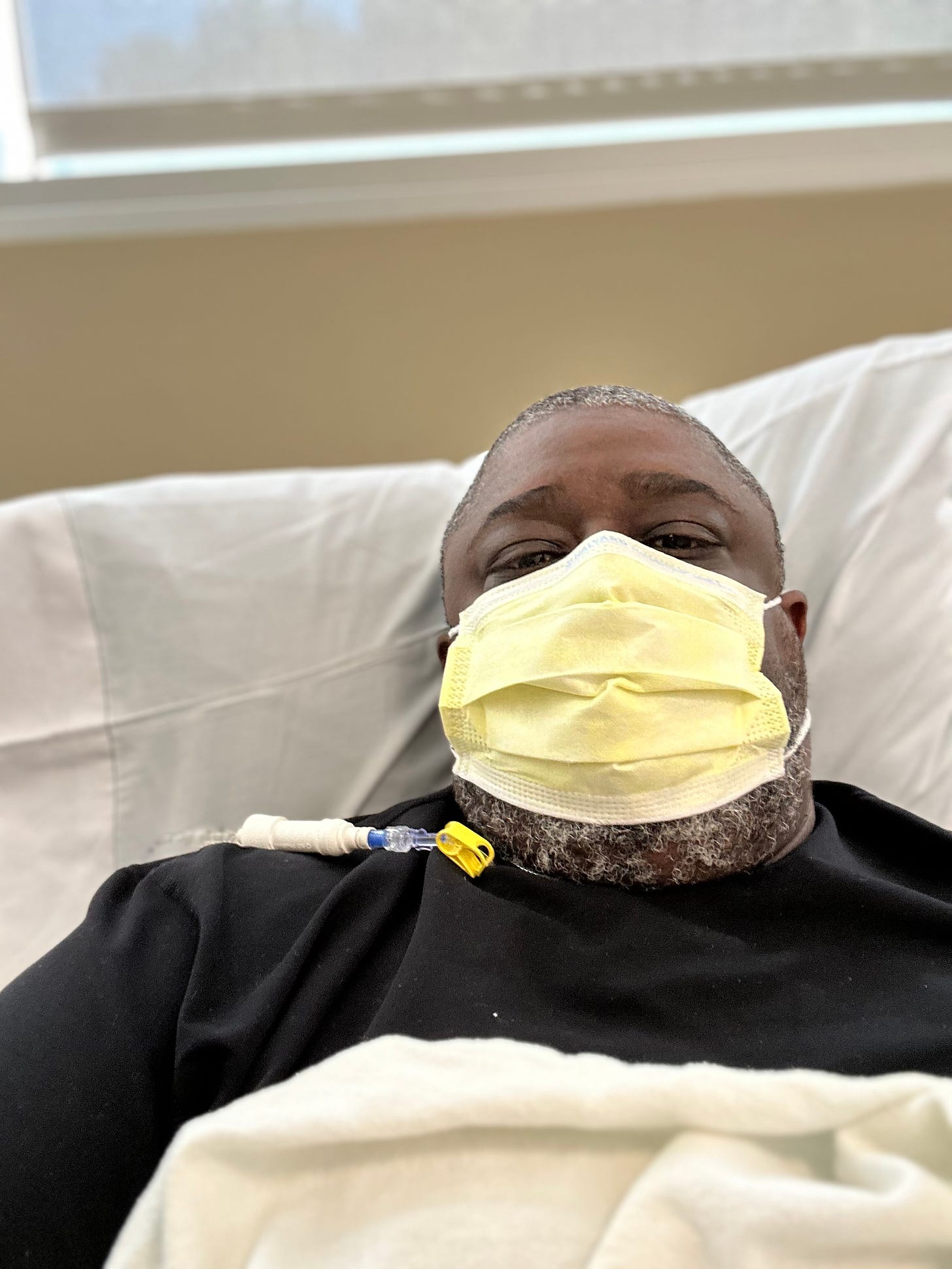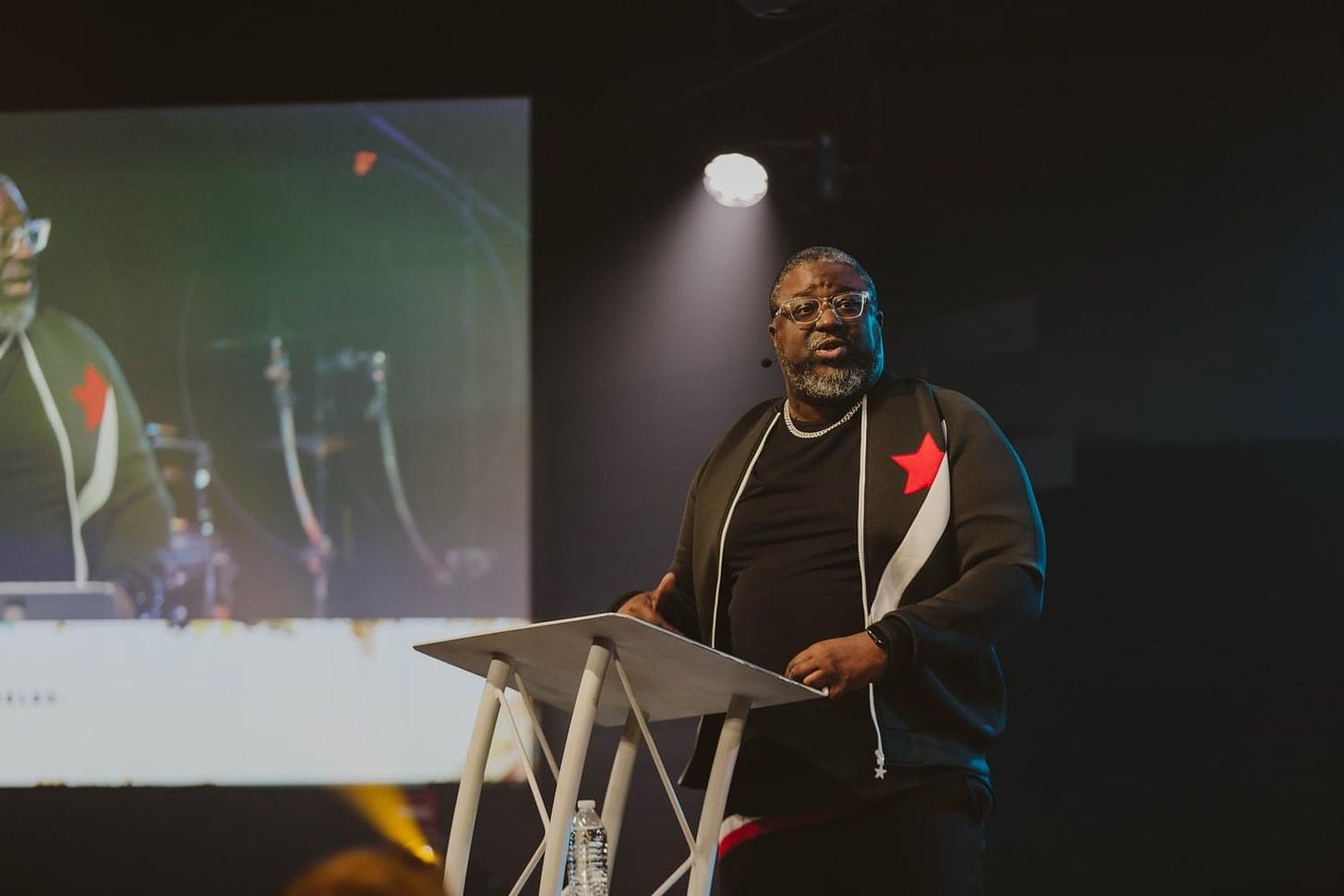Most people who know me well, know that I am an eternal optimist. In fact, I often describe myself as being “annoyingly optimistic.” I think I am just hard wired to be a positive person. It takes a lot to get me discouraged. Simply put, I am “can do” type of person
I suppose some of my positive perspective on life comes from a place of necessity. One of my favorite verses in the Bible is found in Psalm 27. “ I would have lost heart, unless I had believed That I would see the goodness of the Lord in the land of the living.” (Psalm 27:13 NKJV)
Like King David, I realize that the only way that I have a shot at maintaining some semblance of hope is to believe that God is in the business of blessing each day. Let’s face it I don’t need to be hopeful about the life to come. I know heaven is great and I do plan on going there, I’m just not in a rush.
So that means that I need hope here, in this life, in this world, in my current reality. I choose to believe that I can see God’s goodness if I look hard enough by paying attention to God’s involvement and activity in the ordinary everyday parts of my life. I am a “can do” person because I've learned that not having hope actually does damage to my heart.
I was recently asked by someone if I had ever written on the subject of what should or could be done by a person with a disability who is just in a season of not being able to attend church. They understood the value of community. They had the desire to belong to a local church. It wasn’t even necessarily an issue of not being accepted and welcomed into the church because of their disability. The issue was simply that their disability was contributing to reasons why they just couldn’t do church in this season.
Honestly, I know the feeling. Maybe not in the same way, but even with my “can do” annoyingly optimistic perspective, I too find myself struggling with times when my disability limits me from doing things that my faith says that I should do. Sometimes social anxiety, sensory processing, executive functioning challenges, and depression slow down the consistent practice of important parts of my faith life like attending church, small groups, Bible study, and even prayer.
So, what happens when there is a collision between practicing my faith and the reality of life with a disability? What do I do when I can’t? Maybe we can find an answer in this story:
“Afterward Jesus returned to Jerusalem for one of the Jewish holy days. Inside the city, near the Sheep Gate, was the pool of Bethesda, with five covered porches. Crowds of sick people—blind, lame, or paralyzed—lay on the porches. One of the men lying there had been sick for thirty-eight years. When Jesus saw him and knew he had been ill for a long time, he asked him, “Would you like to get well?” “I can’t, sir,” the sick man said, “for I have no one to put me into the pool when the water bubbles up. Someone else always gets there ahead of me.” (John 5:1-7)
Jesus shows up on the scene at the pool of Bethesda, which John records, was a gathering place for people with varying disabilities. According to legend, an angel would stir the water and the first person with the ability to jump into the pool would be healed. If you’ve ever wondered why some versions of the text don’t include verse four, which explains the angelic activity at the pool, it’s because the earliest manuscripts don’t offer an explanation as to why the disability community gathered at this pool. Chances are, an explanation was added to make sense of this entire scene, especially if you’re not from around those parts.
Historical criticism aside, what’s most interesting is that Jesus shows up in a place where disabled people gathered because (1)They believed in the place. (2) The believed in the purpose (3) They believed in God’s power. I think it’s safe to say that their belief system wasn’t the challenge. So why then did Jesus ask the man, who apparently had been living with his condition for thirty-eight years, if he wanted to get well?
Truth is I don’t know. I don’t think Jesus was being insensitive. I mean the man wouldn’t be there if he didn’t believe that it could benefit him. He had hope and yet his answer to Jesus is still a measure of the sobering reality of life with a disability.
“I can’t sir..”
He believes being there is important. He believes being there has a purpose. He even believes that being there can help him experience God’s power, yet when it came to actually getting into the pool he simply couldn’t do it.
Sometimes life with a disability means wrestling with the belief that church is important, community is important, prayer is important, reading my Bible is important, only to arrive at the reality that sometimes I simply can’t.
And that’s ok because Jesus never condemns the disabled man for what he couldn’t do. Sure, when we preach about him we condemn him for not finding a way to get into the pool, but Jesus NEVER condemns him for what he was unable to do. He just gives the man what he needs.
Let’s face it, the gospel was never about our ability to do anything. Jesus doesn’t die on the cross because of what we won’t do, he dies because of what we CAN’T do.
The cross was for those who CAN’T because our ability to practice our faith perfectly isn’t what holds us in the palm of God’s hands. It is the Christ who bore the cross for our CAN’T so that we can be a part of his Kingdom.
To all my brothers and sisters living with a disability who believe but sometimes just can’t, know that Christ’s sacrifice on the cross covers our CAN’TS. We may not be healed, but we are still his, and that my friends is a hope worth holding on to.
-Pastor L






Excellent post and very encouraging from someone with lived experience! Thanks for sharing…